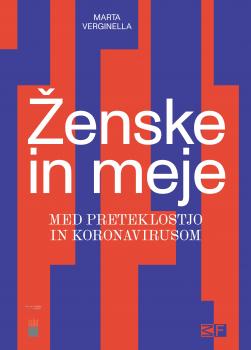Ženske in meje med preteklostjo in koronavirusom
Ključne besede:
meje, 20. stoletje, covid-19, ženska mobilnost, žensko deloKratka vsebina
V 20. stoletju so se državne meje v severno jadranski regiji premaknile po prvi svetovni vojni, v času druge svetovne vojne in po njej. Obdobjem bojev za meje so sledila obdobja miru in stabilnosti, ki so dopuščala njihovo prestopanje in počasno brisanje. Širjenje koronavirusa nas je opozorilo na to, kako hitro se lahko že opuščene meje na novo vzpostavijo in kako se utečeni tokovi mobilnosti prekinejo. Knjiga osvetli socialne in gospodarske značilnosti ženske mobilnosti, ki je koreninila v družbi starega režima in je doživela nove oblike razumevanja v času vzpona nacionalizma. Osredotoči se tudi na fenomen ženskih begunk v času prve svetovne vojne in na prisiljen odhod slovenskih intelektualk iz Trsta in Gorice po prihodu italijanskih čet in še posebej vzponu fašizma. Osvetlitev aleksandrink, tihotapk in hišnih pomočnic omogoča raziskovanje ženskega dela, obenem pa kaže na to, kako se v različnih oblikah ženske mobilnosti kažejo raznoliki poskusi nadzora njihovega dela in telesa.
Downloads

Izdano
E-ISSN
Tiskane izdaje ISSN
Licenca

To delo je licencirano pod Creative Commons Priznanje avtorstva-Deljenje pod enakimi pogoji 4.0 mednarodno licenco.

